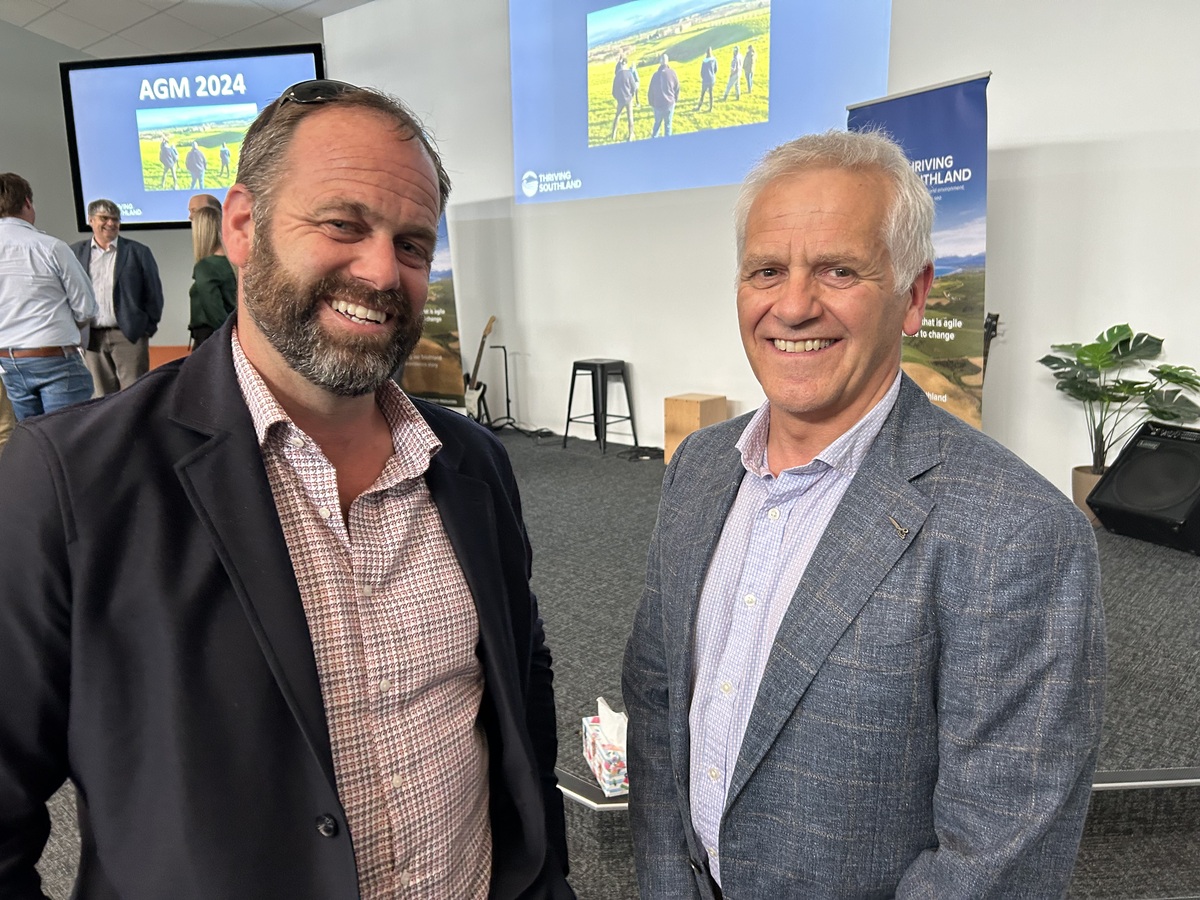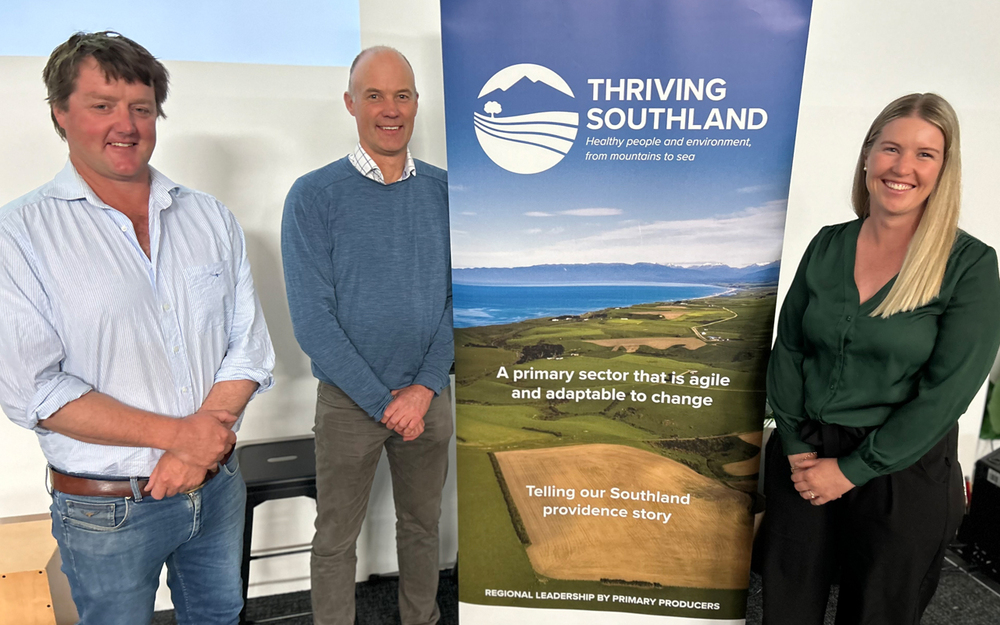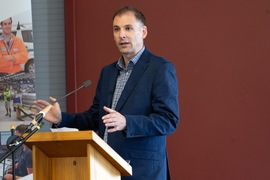International interest in Southland’s catchment group support model
McCarthy Media
21 November 2024, 7:38 PM
 Edendale farmer and recent Nuffield New Zealand Farming Scholarship recipient Jon Pemberton (left) and guest speaker Neal Wallace. Photo: Supplied
Edendale farmer and recent Nuffield New Zealand Farming Scholarship recipient Jon Pemberton (left) and guest speaker Neal Wallace. Photo: SuppliedSouthland’s innovative catchment group support model appears to be turning heads internationally.
About 50 people gathered at Otautau Connect on Wednesday (20 November) for the Thriving Southland AGM.
Thriving Southland Chairman Jeff Grant acknowledged the challenges the “wettest spring in 43 years” had presented but praised farmers’ resilience and innovation in looking for continuous improvement.
Project lead Richard Kyte said things started to happen when information and localised, relevant science was put in farmers’ hands.
Some highlights from the year included the Balfour Catchment Group, which won the Environmental Action in Water Quality Award at the Environment Southland Community Awards for its Targeted Solutions to Balfour’s Environmental Challenges Project, which focuses on understanding the reasons and pathways for N-Loss on the Balfour Fan.
Another highlight was catchment groups working together to tackle wider ranging challenges, such as the Edendale Aquifer Group’s Understanding our Water Quality Project, Kyte said.
“We’re seeing some major work being done that’s making a difference now,” he said.
The catchment group model was attracting international interest, although some European farming leaders could not believe Southland farmers were taking action voluntarily, Kyte said.
Guest speaker, well-known agriculture journalist Neal Wallace, expanded on the international farming and trade situation.
Wallace has recently returned from an overseas trip where he explored consumer trends, key customer expectations in dairy and meat production, and the impact of global political shifts on trade.
New Zealand farmers had done the hard work and our production systems were recognised as efficient, with a low carbon footprint, Wallace said.

Newly elected Thriving Southland board members (L-R) Edward Pinckney, Simon Saunders and Alexis Wadworth. Photo: Supplied
That said, market access would be an ongoing challenge, and farmers needed to earn the right to supply premium clients, who had increasingly stringent sustainability requirements, he said.
Transparency of farming practice was essential, he said.
There were also new competitors to consider, with Wallace citing the example of McDonald’s taking beef out of the Amazon.
Lamb export markets were very challenging, and New Zealand producers were working hard to innovate with new products. Dairy protein exports seemed to have a very secure future, he said.
Dutch dairy farms presented interesting case studies in terms of sustainability payments being made and innovations around dealing with farm effluent, Wallace said.
Alexis Wadworth, Edward Pinckney and Simon Saunders were elected on to the Thriving Southland board.



